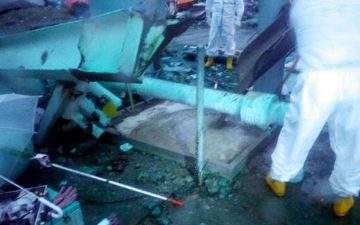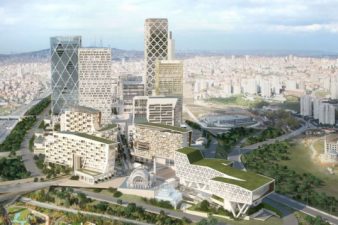 It has been three decades since Jordan’s national grid has seen substantial infrastructural changes, but the US Trade and Development Agency (USTDA) has recently donated $1.15 million to the kingdom so that it can explore the option of implementing a “smart” upgrade. As new renewable, nuclear and oil-shale power plants are slated to come online in the next decade, a digital electrical system would enhance energy efficiency and safety, writes the Jordan Times. Hit the jump to learn more.
It has been three decades since Jordan’s national grid has seen substantial infrastructural changes, but the US Trade and Development Agency (USTDA) has recently donated $1.15 million to the kingdom so that it can explore the option of implementing a “smart” upgrade. As new renewable, nuclear and oil-shale power plants are slated to come online in the next decade, a digital electrical system would enhance energy efficiency and safety, writes the Jordan Times. Hit the jump to learn more.
Exploring the grid
US Ambassador to Amman, Stewart E. Jones, USTDA Regional Director Carl Kress and Ahmed Hiyasat, Commissioner of Jordan’s Electricity Regulatory Commission (ERC), signed an agreement in Amman last Thursday that will result in a one-year study of the kingdom’s national grid.
Smart grids use digital technology that allow power producers to better understand load requirements, and the behavior of both producers and consumers of energy. Instead of guessing how much energy to send to a certain power point at different parts of the day, smart grids “know” exactly how much energy is required, thereby improving the efficiency and sustainability of electricity services.
There are three main electricity distributors in Jordan, namely the Electricity Distribution Corporation, Irbid Electric Power Company and the Jordanian Electric Power Company. Until now, 98% of the kingdom’s energy supply has been imported, a system that has been particularly troublesome since the onset of the revolution in Egypt that has disrupted natural gas supply.
New Energy Era
Combining smart grids, which will require an overdue overhaul of Jordan’s dinosaur grid, with smart meters that more accurately calculate how much energy each household or industrial plant uses, will slash energy waste and enable a more effective tariff system that rewards users who conserve.
“Establishing a smart-grid is not an option but a must for Jordan in order to improve services and move the country towards the future,” Mr. Hiyasat told The Jordan Times.
The USTDA grant will fund 90% of the feasibility studies, which are necessary to determine how to equip the national grid so that it can handle the intermittency of renewable energy generation alongside more stable supplies.
With Greenpeace Jordan at the helm, local activists have been very outspoken against nuclear energy, but significantly less so about energy derived from the exploitation of oil shale, an unproven technology that is cause for great concern among environmentalists in the United States, Israel, South Africa, and elsewhere.
Image credit: Electricity technician, Shutterstock
More on Energy Generation in Jordan:
Understanding Jordan’s Nuclear Ambitions
Jordan’s First Nuclear Reactor: No-Go Without Parliamentary Pre-Approval
Jordan Announces Oil-Shale Plans Without Opposition



